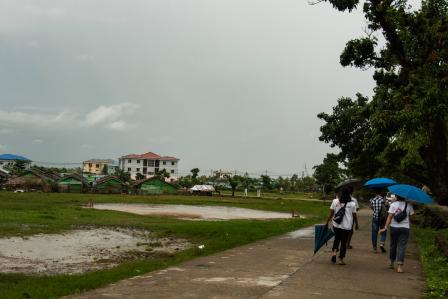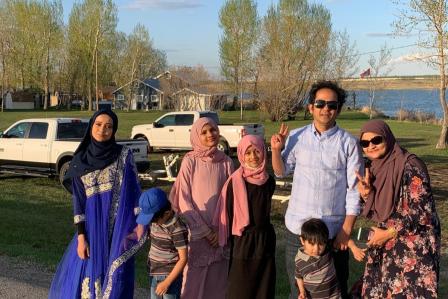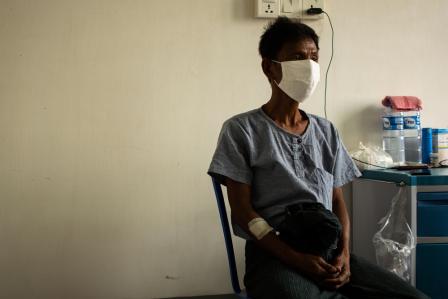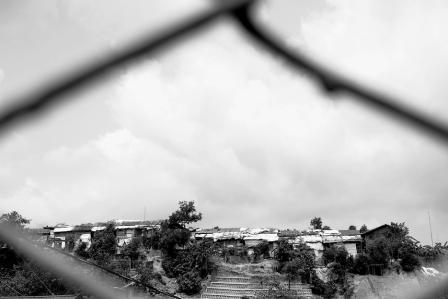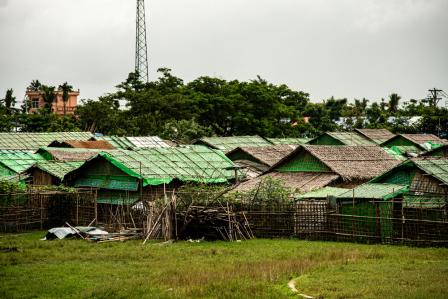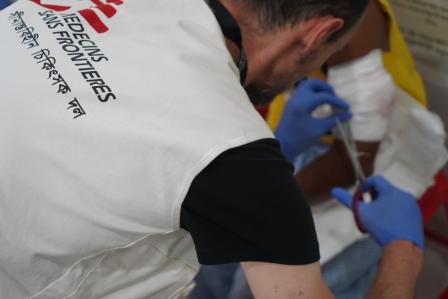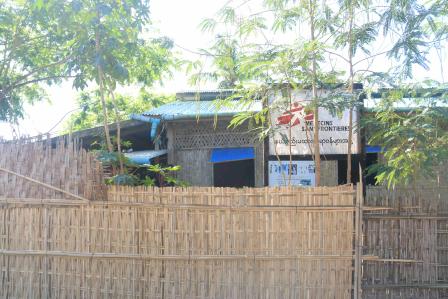Doctors Without Borders response to developments in Myanmar
MSF’s Thaketa clinic as seen from the outside. © Lwyn Phyu Phyu Kyaw/MSF
Our teams in Myanmar are working hard to sustain access to some of the most vulnerable people and to ensure the provision of medical care to those in need. From the onset of the crisis, Doctors Without Borders/Médecins Sans Frontières (MSF) has been preparing its emergency team so that we could act as soon as the need arose and when the medical demands on the ground overwhelmed the hospital’s capacity to respond.
February 28 was one of the most violent days in Myanmar since the start of the recent military coup at the beginning of February with at least 18 reported deaths. On the same day, and the following day, Doctors Without Borders' “Emergency Preparation Team” (E-Prep team) started responding in Yangon to assess the needs at protest sites and donate medical supplies to hospitals in Yangon and in other Doctors Without Borders project locations.
Doctors Without Borders E-Prep teams consist of medical staff and counsellors and aim to provide support to medical facilities, Donations of medical supplies to a number of hospitals have already started. Meanwhile, Doctors Without Borders clinic’s in Lashio received and treated four casualties with minor injuries due to the protests. Dawei, in south eastern Myanmar, has also seen violent confrontations and casualties over the last days. Doctors Without Borders teams are aiming to support community initiatives with donations of medical supplies, and first aid kits, and are also reinforcing measures to manage injuries and casualties. At the same time, Doctors Without Borders teams want to ensure the care for our HIV patients is not interrupted as a result of wider disruptions in public health services.
We are seeing an increasing number of HIV-positive patients from the National AIDS Programme (NAP) of the Ministry of Health and Sports (MoHS) returning to Doctors Without Borders clinics, where they were originally treated, before the program was handed over to the MoHs last year, to refill medicines and have medical consultations. We also have new patients arriving in our clinics, as currently the NAP is not functioning. In addition, as many of the public hospitals in Myanmar are closed, we are finding it difficult to refer patients to larger hospitals for specialised treatment.
We are mindful of the affects of the coup on both our staff and patients and are doing what we can to minimize the risks and access issues that have arisen as result. While our activities in Rakhine are running, the Rohingya population, especially those living in displacement sites, remain particularly vulnerable to disruptions to medical services having suffered decades of neglect, discrimination, violence and persecution. We emphasise that in all circumstances, and regardless of age, religion or political affiliation, our priority is the provision of care for our patients. We will continue to deliver impartial medical care to the most vulnerable people to the best of our capacity and while access and circumstances still allow for the provision of care.
